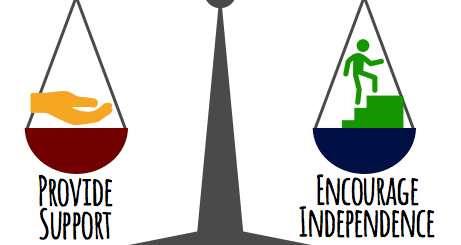Tips for Improving Your Journaling Practice
In a previous blog, one of our adolescent blogging ambassadors talked about some benefits of journaling. The practice of journaling regularly has physical benefits—for example, it really helps strengthen the immune system! Emotionally, it helps us organize our thoughts, explore and articulate our emotions, and better appreciate our lives by helping us focus on positive experiences and attitudes.
But we may still find it difficult to make time to do it. We may struggle to find a time to journal or feel stuck in negative emotions. Let’s look at some ways to overcome these challenges and improve your journaling practice.

Pick out the journal that’s right for you
Make the experience enjoyable from the start by lingering over your choice of journal. There are so many different styles to choose from, and you don’t have to try just one. Maybe you’d like to use paper and pen—you can even make your own. Or maybe you prefer to journal with your phone or tablet—if so, there are many cool apps.
There are journals designed for specific purposes, such as gratitude journals and mood journals. As you make your selection, think about the goals you’d like to achieve in your journaling practice. For example, do you want to reduce your stress, manage your anger, or list meaningful moments of your life? Thinking about your purposes can help you choose a journal that supports you.
If you have trouble blocking out a certain “writing time” in your day, find a journal that includes notifications. For example, a free mood-journal app called “My Life My Voice” lets you set electronic reminders, and it lets you journal not just with words but also with emoticons, photos, and voice recordings. It also lets you see trends in your moods over time, and it gives you useful tips on how better to manage your negative emotions.
Find ways to work through negative emotions that come up during journaling
One of the biggest barriers to journaling is focusing too much on our negative emotions. If we don’t have strategies to work through these emotions, journaling might make us feel even more upset. Here are some strategies:
- Look at your thoughts in a more objective way. Journaling can help you recognize your irrational and distorted thoughts. As you journal, identify these thoughts, then try replacing them by writing more objective ones. Replacing means not repressing them but putting them in context. Gratitude journals are particularly good at countering depressive thoughts by reminding us how much we appreciate all we have. Journals can also change our attitudes about relationships. For example, after having an argument with your mom, you might fume in your journal, “I think she obviously does not care about my feelings at all!” But as journaling helps you calm down, you may try to look at evidence about that first feeling: “Well, she was the one who asked me to talk with her.” The evidence may change your mind: “Maybe she does care about me!”
- Learn to see nuances in your emotions. Have you ever felt totally annoyed by someone you deeply love? That’s nuance: it means being able to hold seemingly conflicting feelings at the same time. For example, when someone you trust lies to you, you may feel a burst of anger, and you may also feel disappointed and hurt. It’s helpful to be able to understand that we’re complicated beings whose feelings are not always so black-and-white.
- Try to end your journal entries on a positive note. The only attitudes and behavior we can change is our own. Think about not-so-pleasant moments as learning experiences, and contemplate which of your own attitudes and behaviors you could change to make life better next time. For example, after having an unproductive study night, you may wind up criticizing yourself in your journal—and then, as you continue journaling, you could strategize about ways to avoid distractions next time. The past cannot be changed, but journaling about your attitudes towards the past can help you write new stories for your future.
 Talk about your journal with your therapist or someone else you trust.
Talk about your journal with your therapist or someone else you trust.
Journaling can be a valuable tool to help both you and your therapist better understand your approaches toward life. Through talking about your journal with your therapist, you may improve your ability to recognize patterns in your emotions. Sharing your journal with trusted adults can help you identify triggers of negative feelings and experiences and create ways to approach them more effectively in the future. It can also help build trust in your relationships.
What kinds of journaling experiences have you had? What challenges have you encountered, and how did you approach them? Share your experiences, stories, and strategies in the comments.




Recent Comments